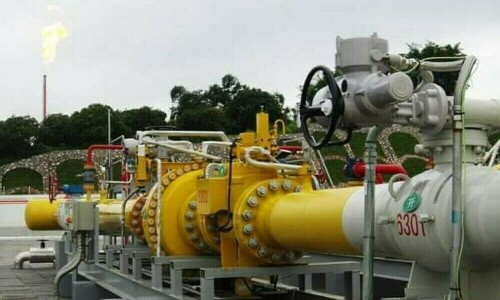Pakistan’s Shift to Natural Gas Surplus: A Demand-Driven Phenomenon
Pakistan has transitioned from a nation grappling with natural gas shortages to one experiencing a surplus. This shift, however, isn’t due to new discoveries but rather a consequence of exorbitant prices that have compelled industries and households to drastically curtail their consumption, according to Zubair Motiwala, a prominent industrialist and former President of the Karachi Chamber of Commerce and Industry (KCCI).
Motiwala, in a discussion, noted that the significant reduction in gas demand has created a surplus across the country. The supply now surpasses consumption within both the Sui Southern Gas Company (SSGC) and Sui Northern Gas Pipelines Limited (SNGPL) networks.
“We have not located additional reserves. Instead, the demand plummeted after substantial gas price increases were implemented based on recommendations from the International Monetary Fund (IMF),” he stated.
The price for industrial consumers has risen to Rs4,200 per mmbtu in recent years, making it unaffordable for numerous businesses, he added.
Decline in Industrial Consumption
Pakistan’s domestic gas production currently exceeds 3,000 mmcfd (million cubic feet per day), while its import infrastructure is equipped to handle an extra 1,200 mmcfd through liquefied natural gas (LNG) terminals. However, the shrinking domestic and industrial needs have led to the underutilization of this capacity.
Motiwala revealed that industrial consumption from captive power plants connected to the SSGC network has fallen from roughly 200–220 mmcfd to a mere 99 mmcfd.
Moreover, many industrial facilities have opted for alternative energy sources like biomass to decrease expenses.
Gas Pressure Incident
Motiwala shared an incident where gas pressure surged to 15 pounds at a factory in Karachi’s SITE area, causing damage to its boilers.
“This unusual occurrence highlights the extent of reduced demand,” he explained.
Meanwhile, Arif Habib, a seasoned businessman, noted that the primary concern is no longer gas availability but pricing.
“The price difference between locally produced natural gas and imported RLNG has diminished, pushing industrial tariffs to unsustainable levels,” he commented.
Motiwala emphasized that the business community has communicated these concerns to relevant authorities, including the Oil and Gas Regulatory Authority (OGRA), cautioning that this trend is causing industries to move away from natural gas entirely.
Despite the surplus, gas utilities continue to implement load-shedding, particularly for households.



Comments (0)
No comments yet. Be the first to comment!
Leave a Comment